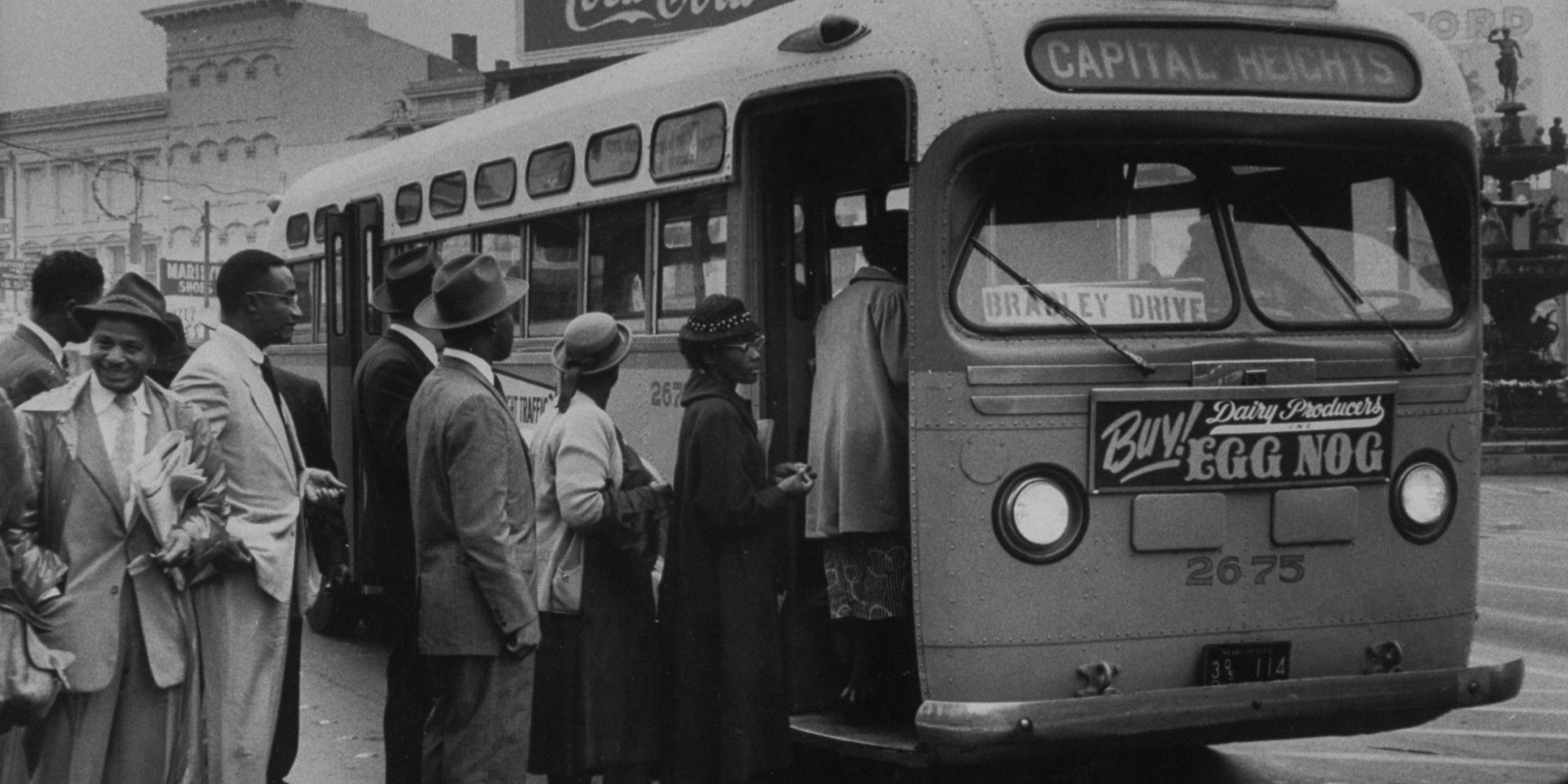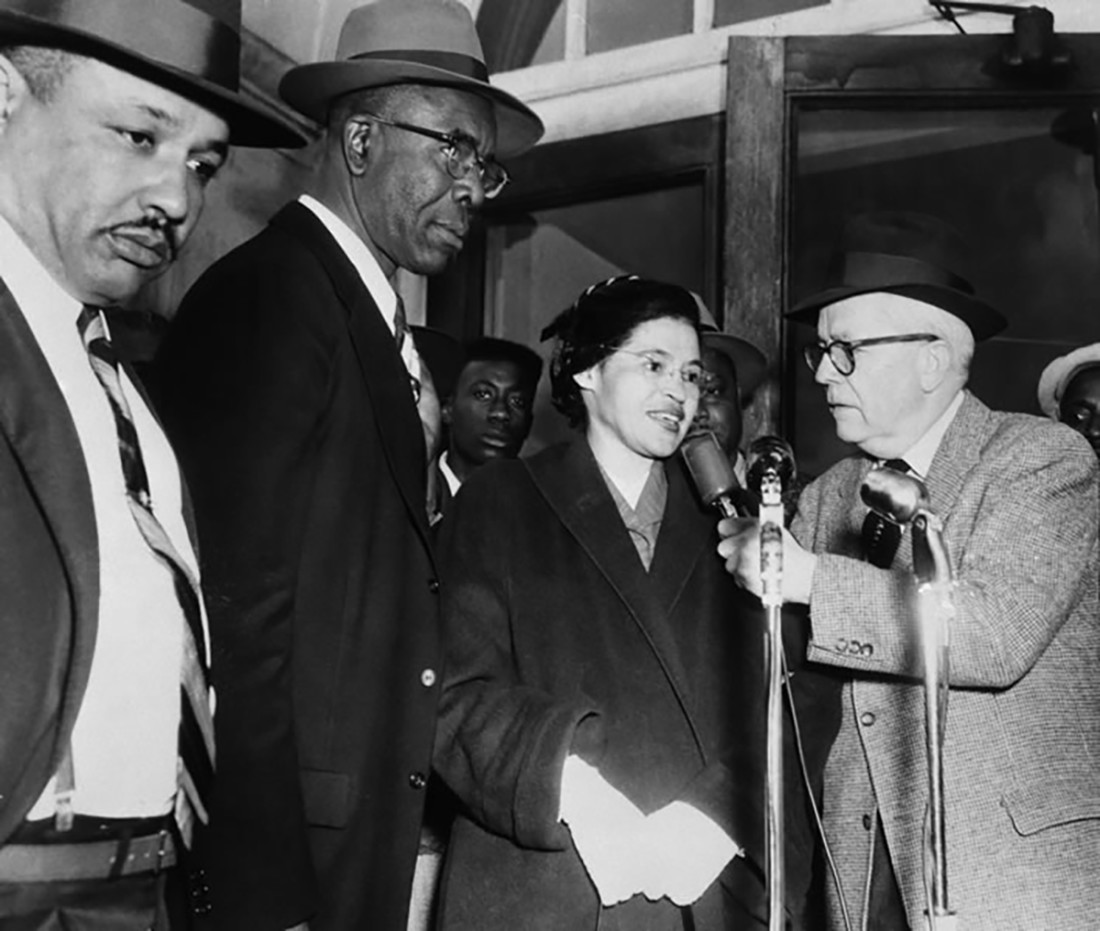BREAKING BARRIERS IN HISTORY- Bus Boycott

The bus boycott was a political and social protest led by Martin Luther King that Bayard Rustin had assisted him with. The boycott was a riot refusing to ride the city buses in Montgomery to protest segregated seating. It was sparked when Rosa Parks was arrested on December 1st 1955.
Prior to the bus boycott, African Americans were not hired as drivers, were forced to ride in the back of the bus, and were ordered to surrender their seats to white people. Black people were looking for means for which to challenge the treatment of African Americans in Montgomery. After Rosas arrest, they decided to call for a boycott of the city's buses.
The Montgomery bus boycott was a 13-month protest that ended in November 1956 with the U.S. Supreme Court ruling that segregation on public buses was unconstitutional. The Montgomery bus boycott demonstrated a nonviolent protest that successfully challnged racial segregation.

"42,000 black people have not ridden the busses since December 5th, but on December 6th, police began to harass, intimidate, and arrest black taxi drivers who were helping get these people to work," Bayard explains in his diary. While black people were boycotting busses and now where being arrested for being taxi drivers, they needed an alternative, the car pool.
They set up 23 dispatch centers where people went to wait for free transportation. There were three ways in addition to car pool, for getting the black community places, hitch-hiking, walking, and transportation of servants by white housewives.